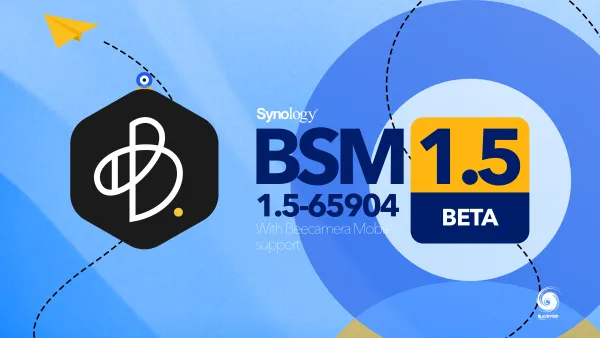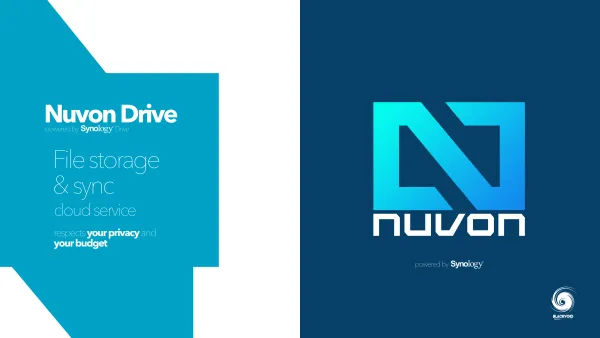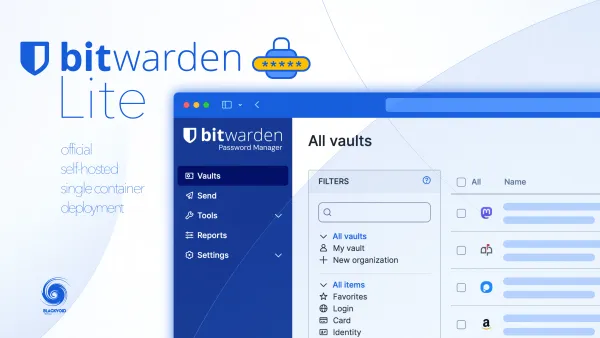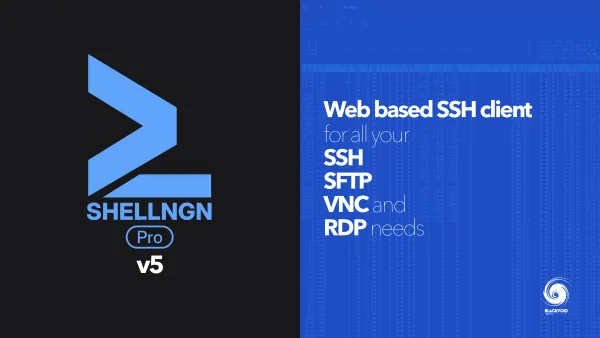Synology PAS7700 overview
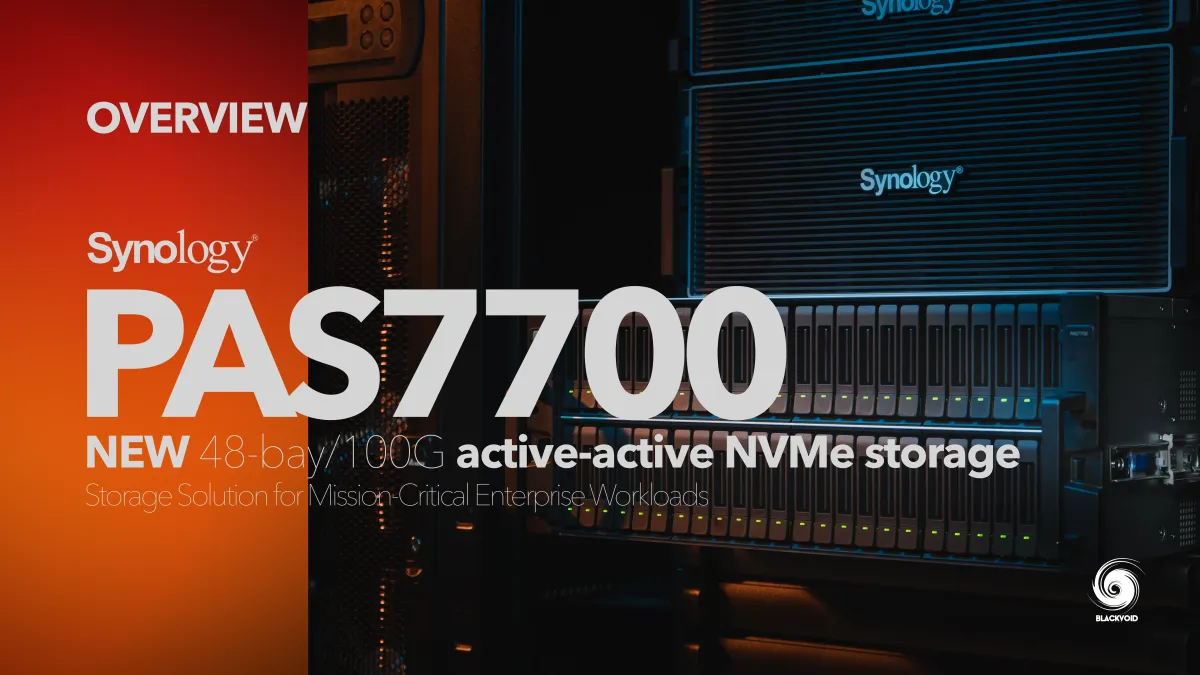
While many new Synology products were announced, refreshed, and showcased at this year's Computex expo, the highlight of this 3-day event is undoubtedly Synology's latest and greatest storage system, the PAS7700.
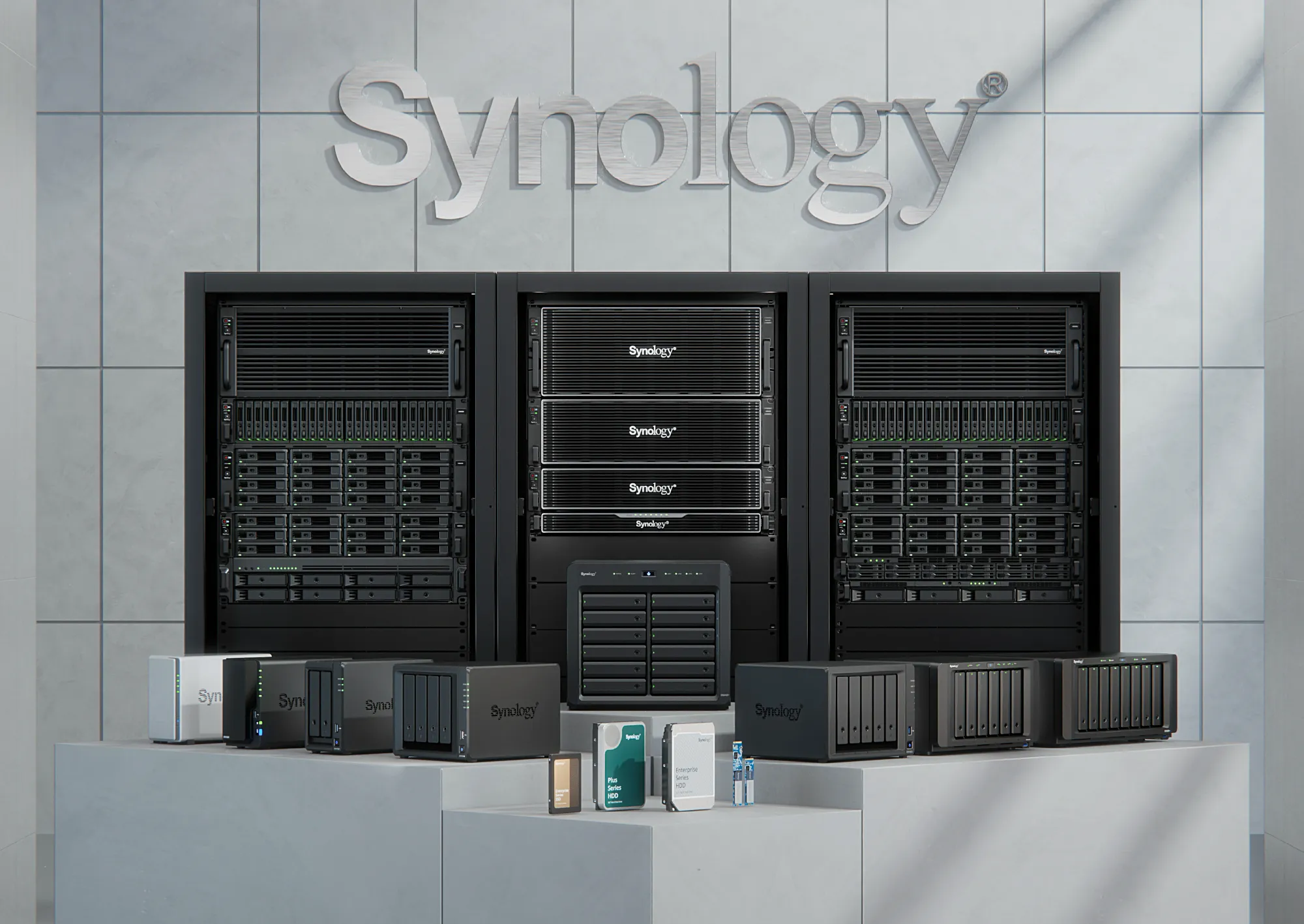
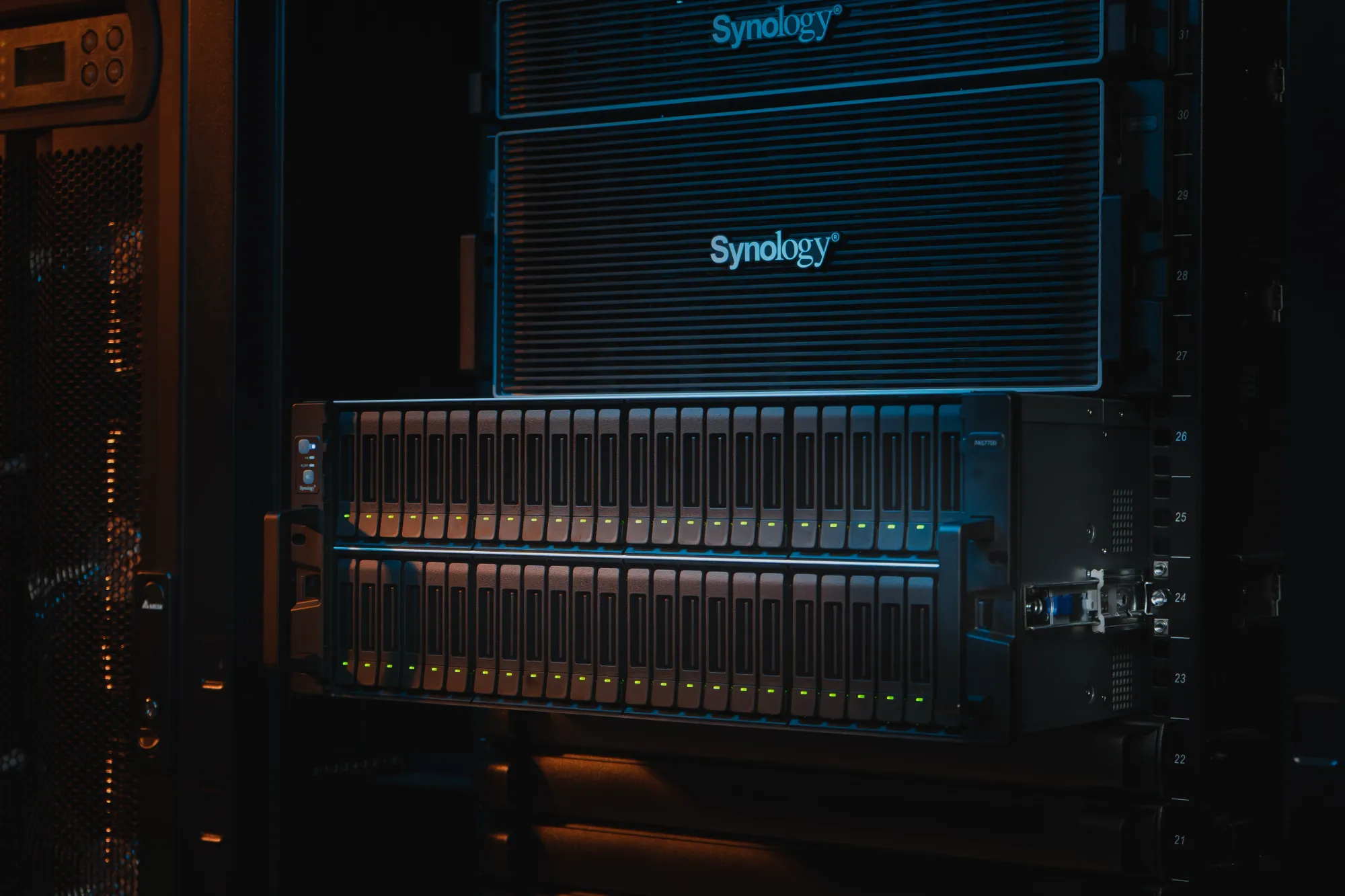
"PAS7700 is the culmination of Synology’s 25 years of engineering experience in data management and storage. By combining our deep software and hardware development expertise with close collaboration with partners and enterprise customers, we’ve engineered PAS7700 to deliver ultra-high performance at a price point previously unseen in the enterprise storage market."
Positioned at the top of Synology's portfolio, the PAS series is a mission-critical lineup intended for intesive workloads. The current PAS7700 model has some impressive hardware specifications to support those.
Designed as an active-active 4U appliance, the PAS7700 consists of two separate 2U controllers, each featuring an AMD EPYC 7443P 24-core CPU running at 2.85GHz with a maximum boost of up to 4GHz. The controllers start with 64GB of DDR4 ECC RDIMM memory, scalable up to 1TB each. In terms of storage, the PAS7700 can accommodate up to 48 U.2/U.3 NVMe SSDs, and with an additional seven expansion units, a total of 216 drives.
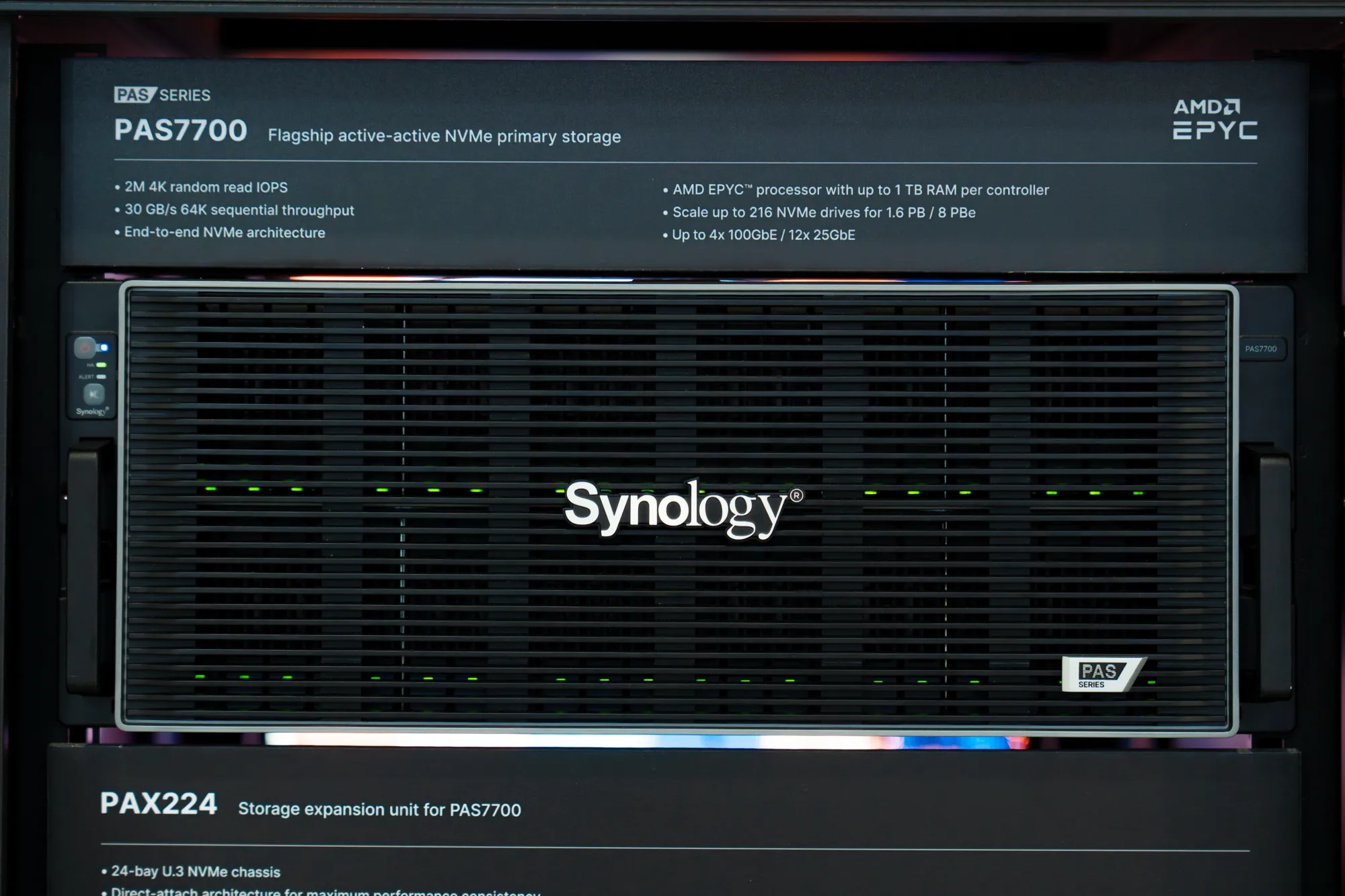
The network capabilities of the PAS7700 are equally impressive. It features a built-in dual 10GbE interface and a 1GbE management port, and supporting a range of PCIe expansion options. With a single PCIe x16 Gen4 and dual PCIe x8 Gen4 slots, the setup can support a total of up to four 100GbE, twelve 25GbE, and 16 GFC network options.
Specifically this means that each controller will support up to two 100GbE and six 25GbE ports (QSFP28), as well as six 16GFC (FC SFP+).
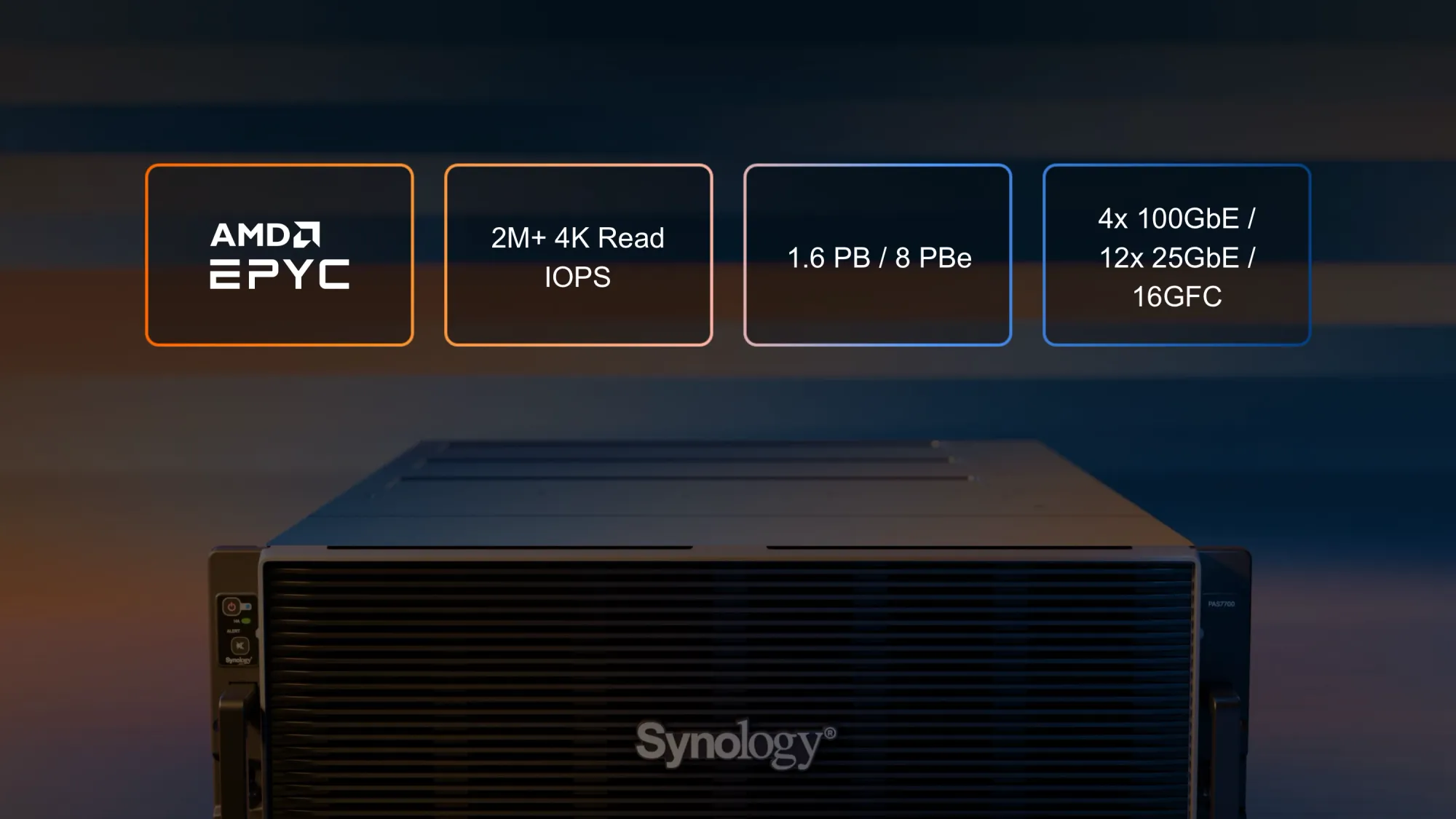
Alongside the main unit, Synology introduced the PAX224 expansion unit. This dedicated 2U rackmount expansion features 24 bays, compatible with U.2/U.3 NVMe SSDs, and connects via dual mini-SAS HD.
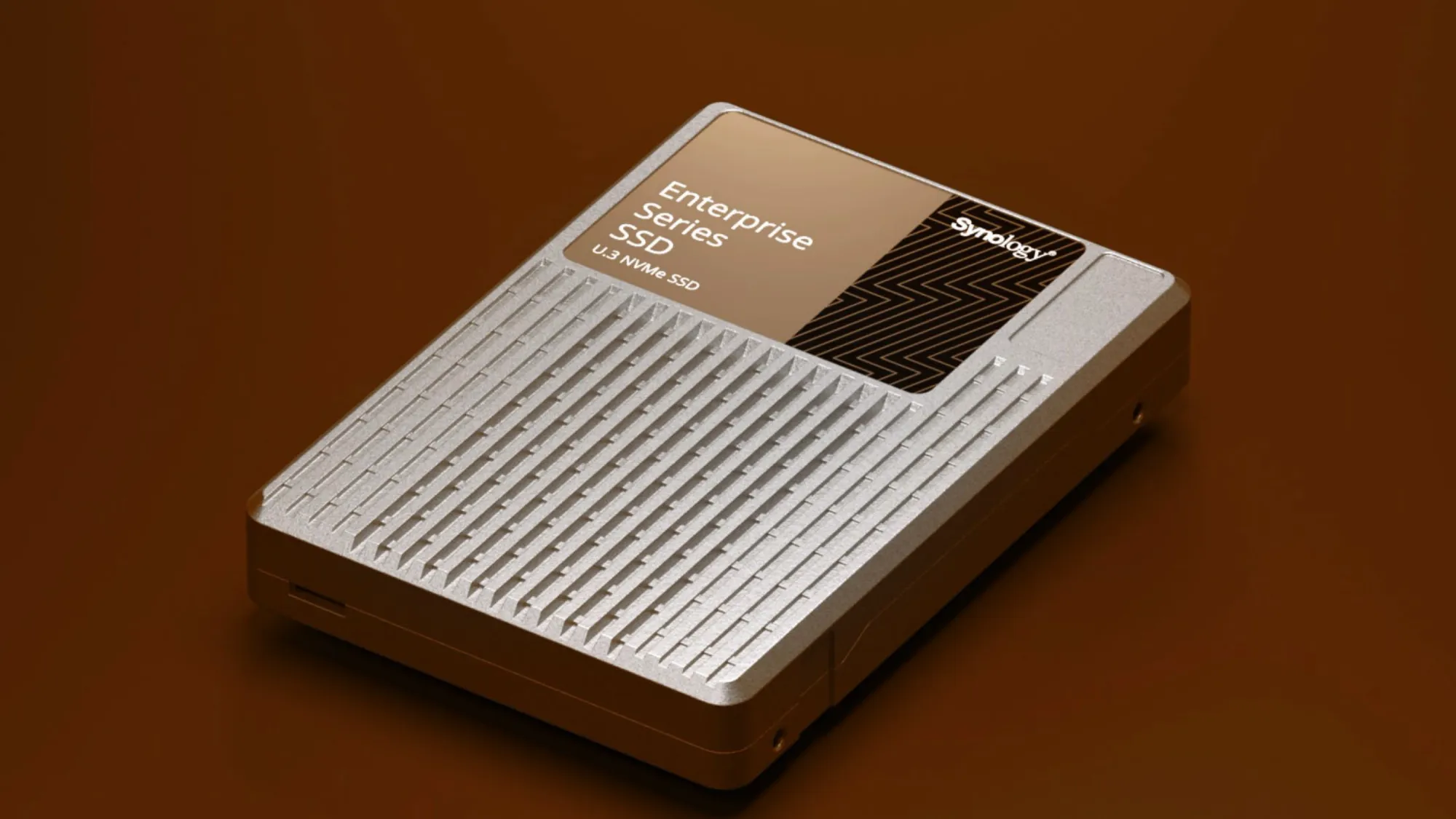
Synology also unveiled a new U.3 NVMe SSD, designed specifically for use with the PAS7700 unit. The new SPU7200D series is a dual-port SSD offering up to 140,000 4K write IOPS, with the first model available in a 7680GB version.
Consequently, with a full complement of 216 drives, the PAS7700 provides 1.65 petabytes of raw storage, which, with an estimated 5:1 data reduction, can achieve an effective capacity of up to 8.25 petabytes.
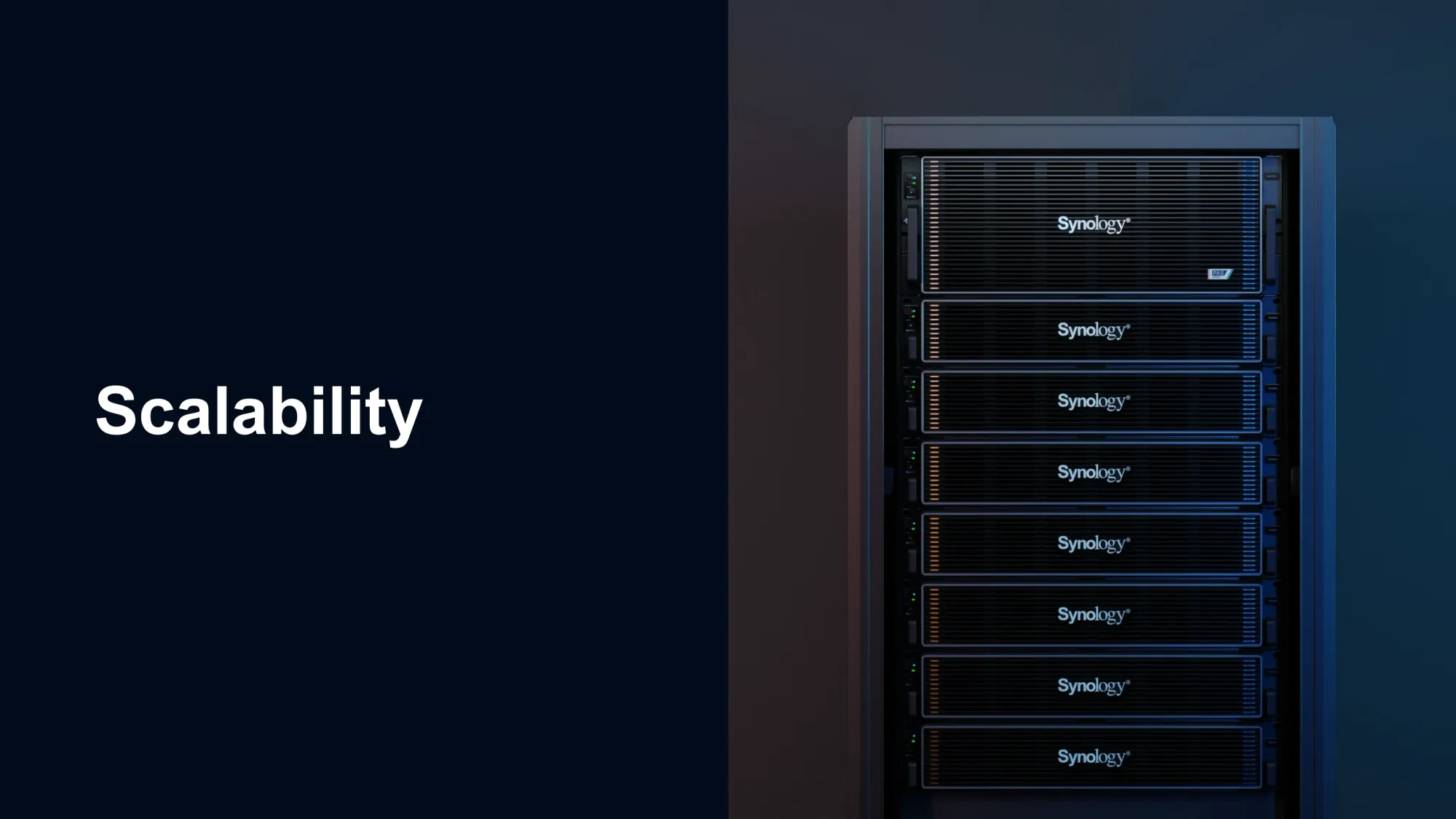
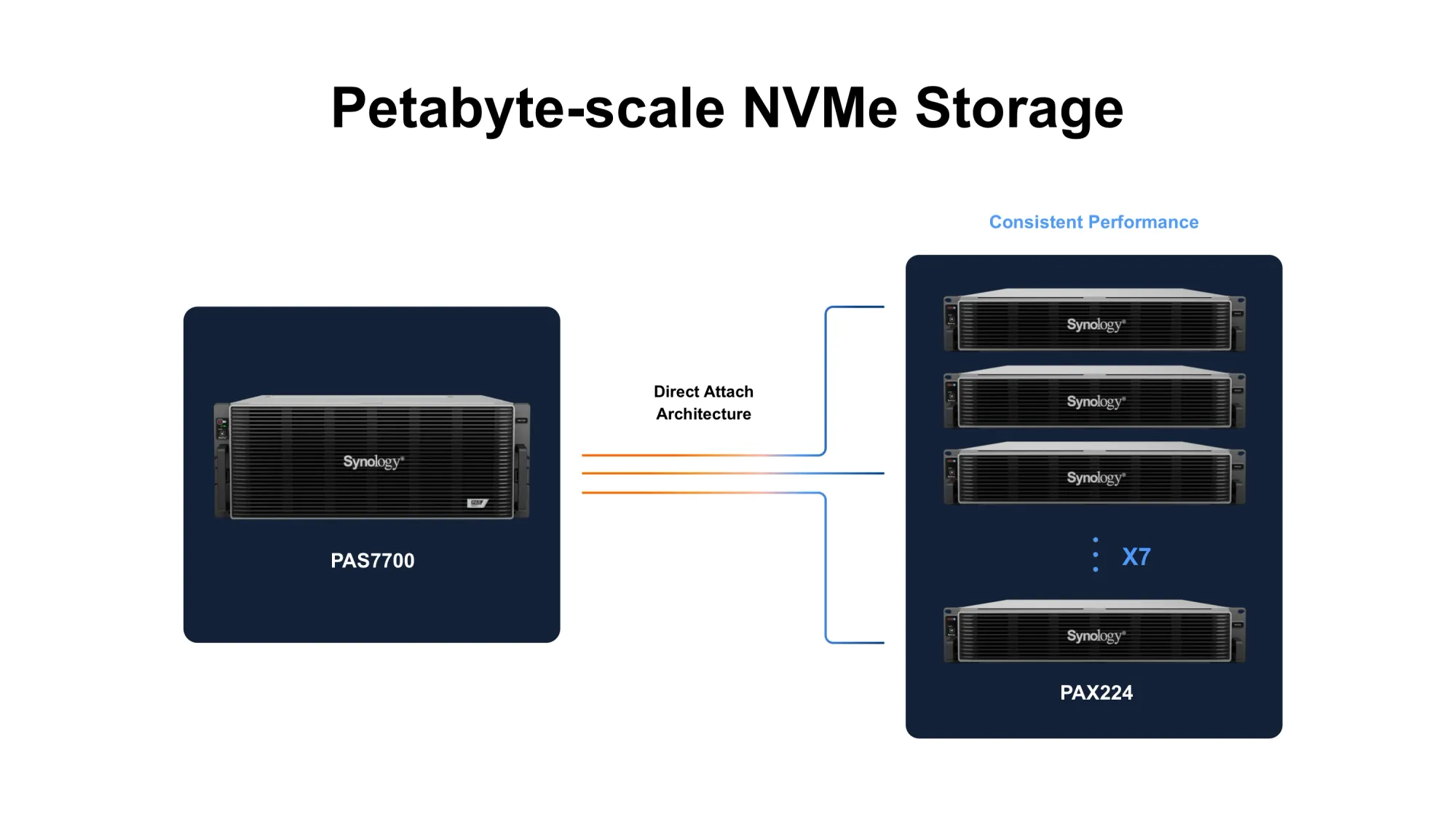
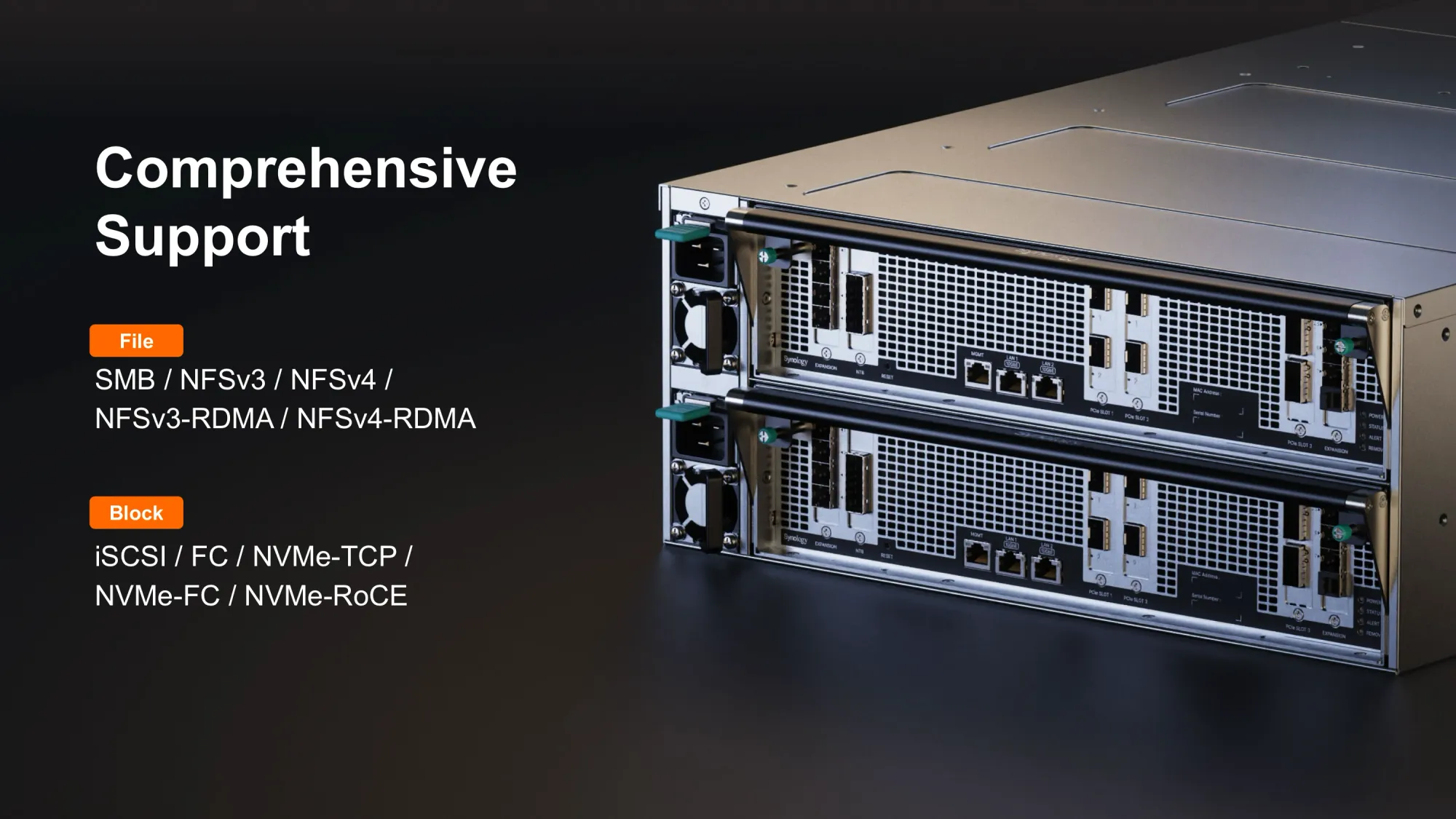
The PAS7700 system is designed for both file and block storage operations, supporting all known protocols, including both NVMe-FC and NVMe-oF, to fully leverage its all-NVMe architecture.
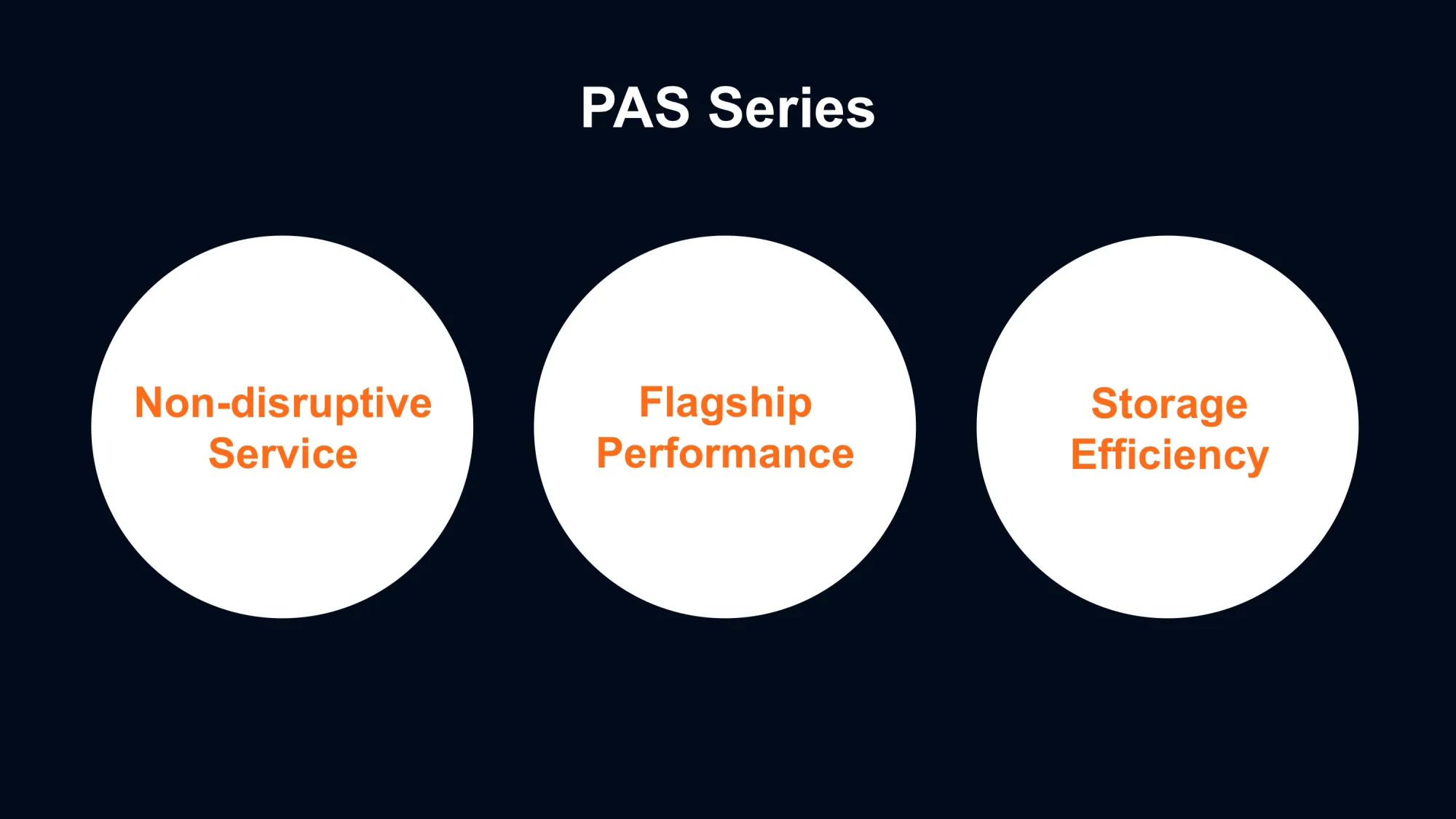
The primary goal of the PAS7700 system is to provide businesses with a non-disruptive environment, spanning from hardware to networking and protocols. It emphasizes multi-layered data security, starting from the ground up, including hardware encryption, MFA, volume encryption, immutability, and monitoring services.
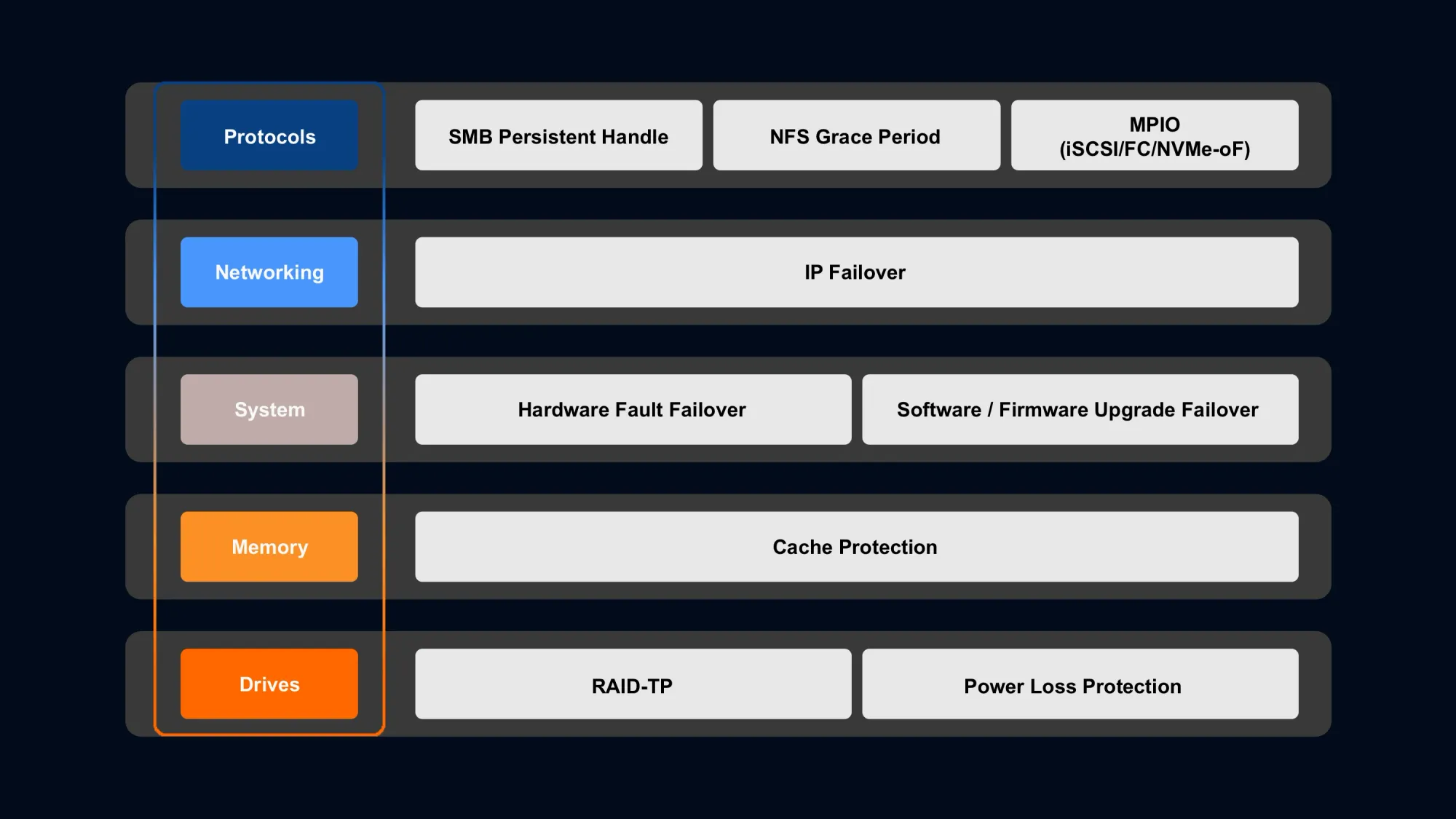
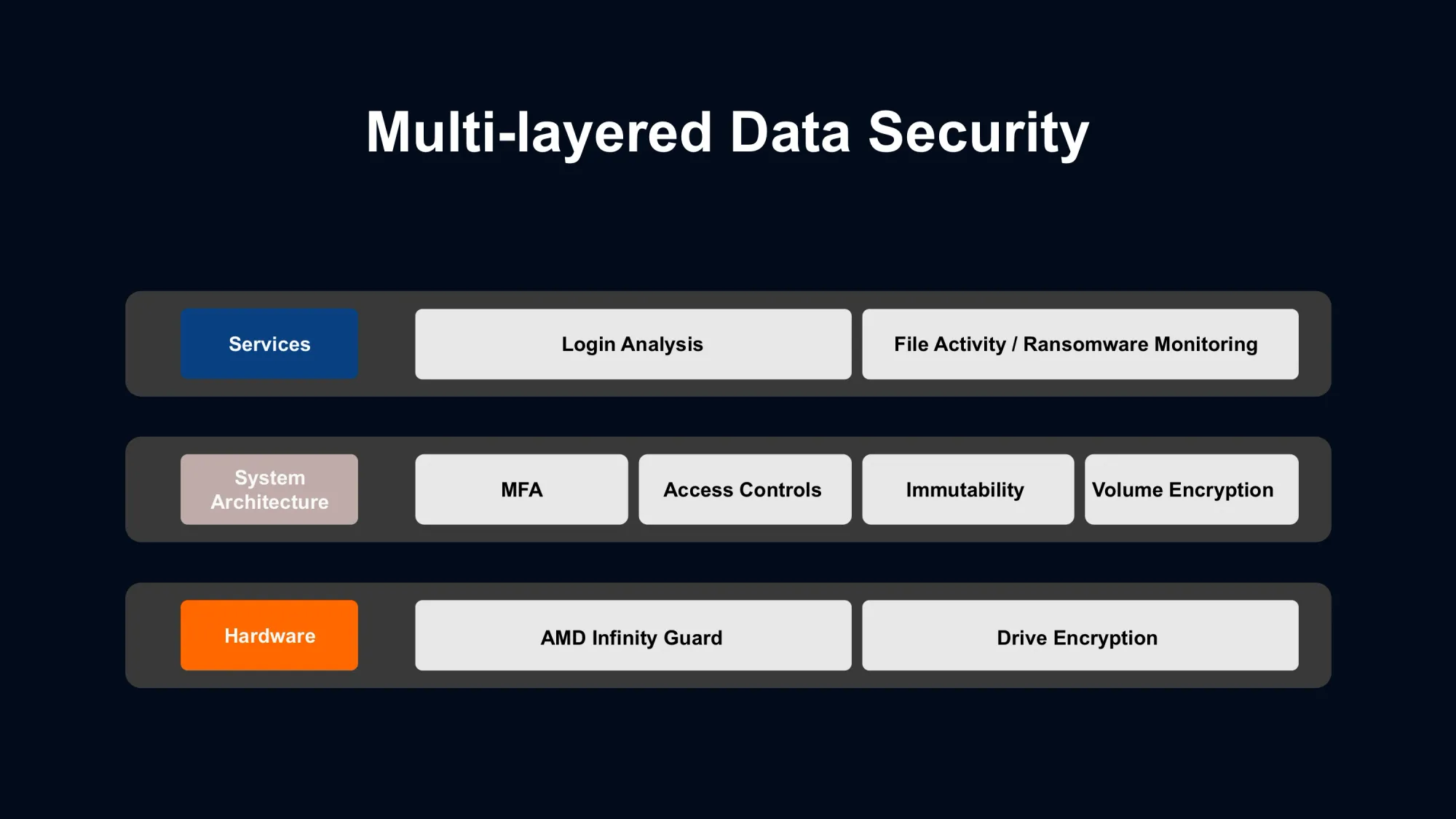
Setup of this scale has some massive performance along with it. The PAS7700 offers up to 2Mil IOPS of 4K random read and 30GB/s 64KB sequential read. To put this in perspective, it can perform a boot up of up to 1000 VDI machines in 1 minute time.
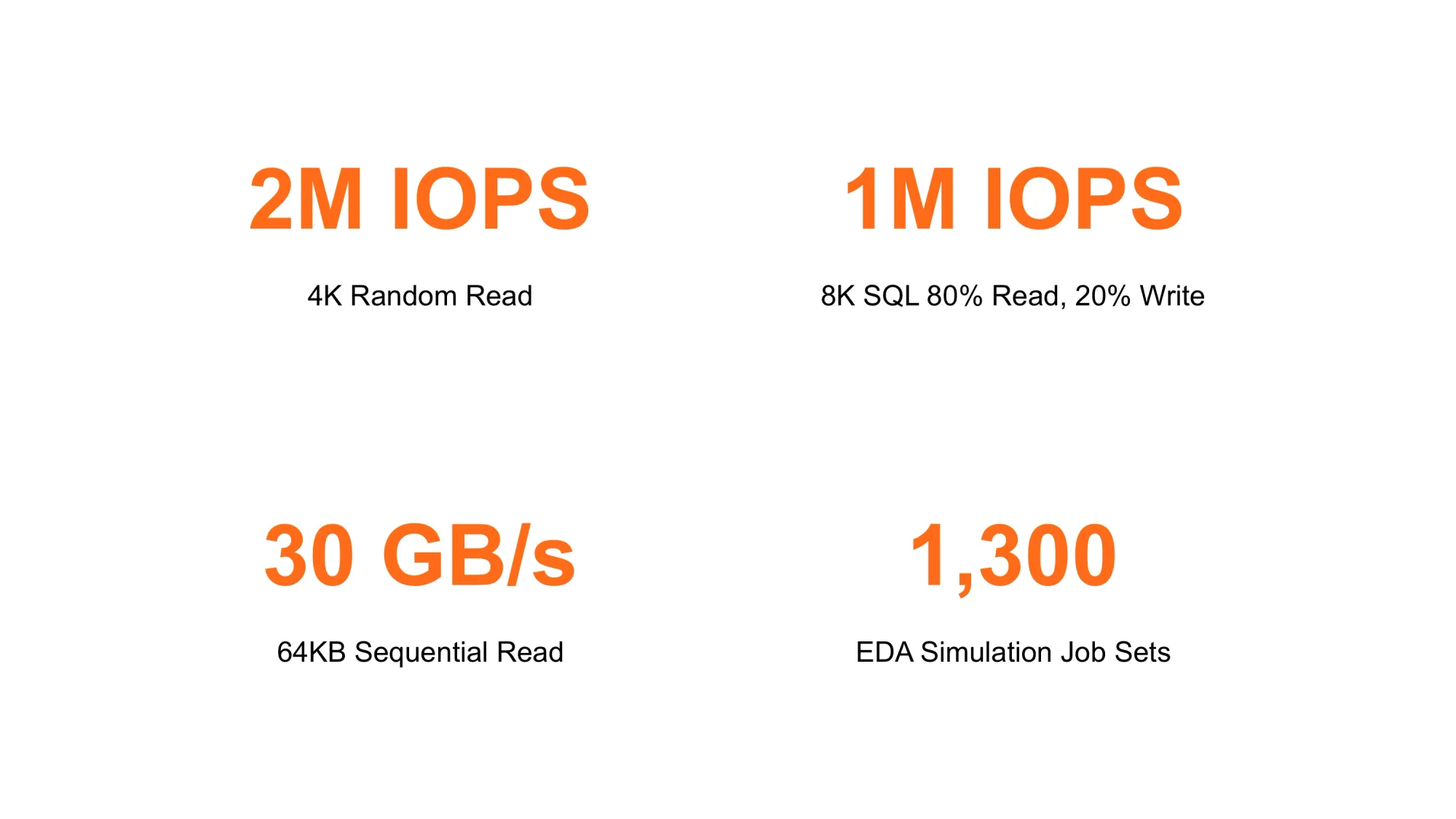
Effectively challenging some of the top brands in the industry, the Synology PAS7700 is poised to be a worthy competitor, especially if its pricing will be competitive.
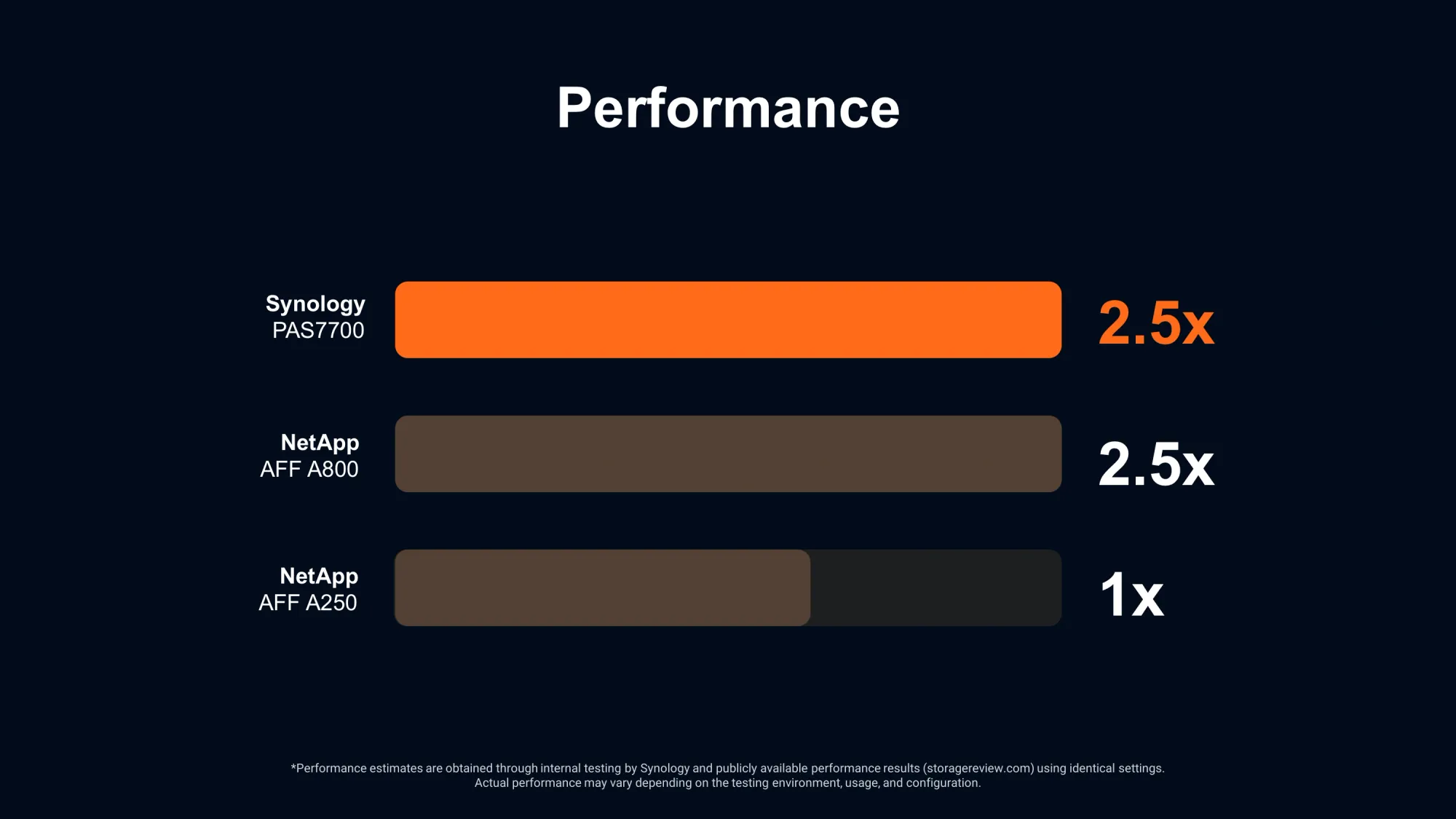
While the performance of this new lineup is impressive, Synology is also focusing on storage efficiency. The previously mentioned 8.25 petabytes of storage is achievable through smart tiering, as well as both inline and offline deduplication.
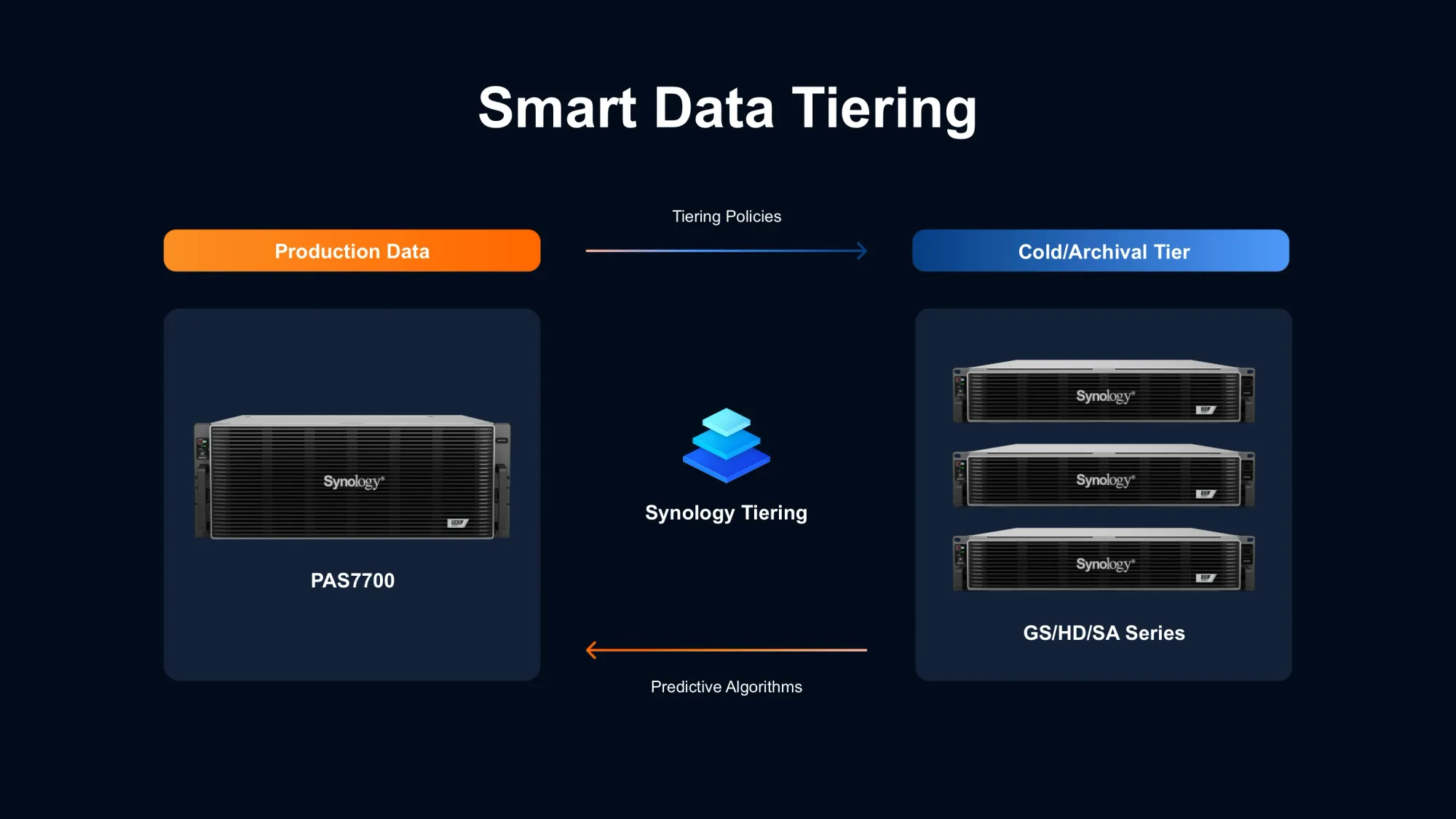
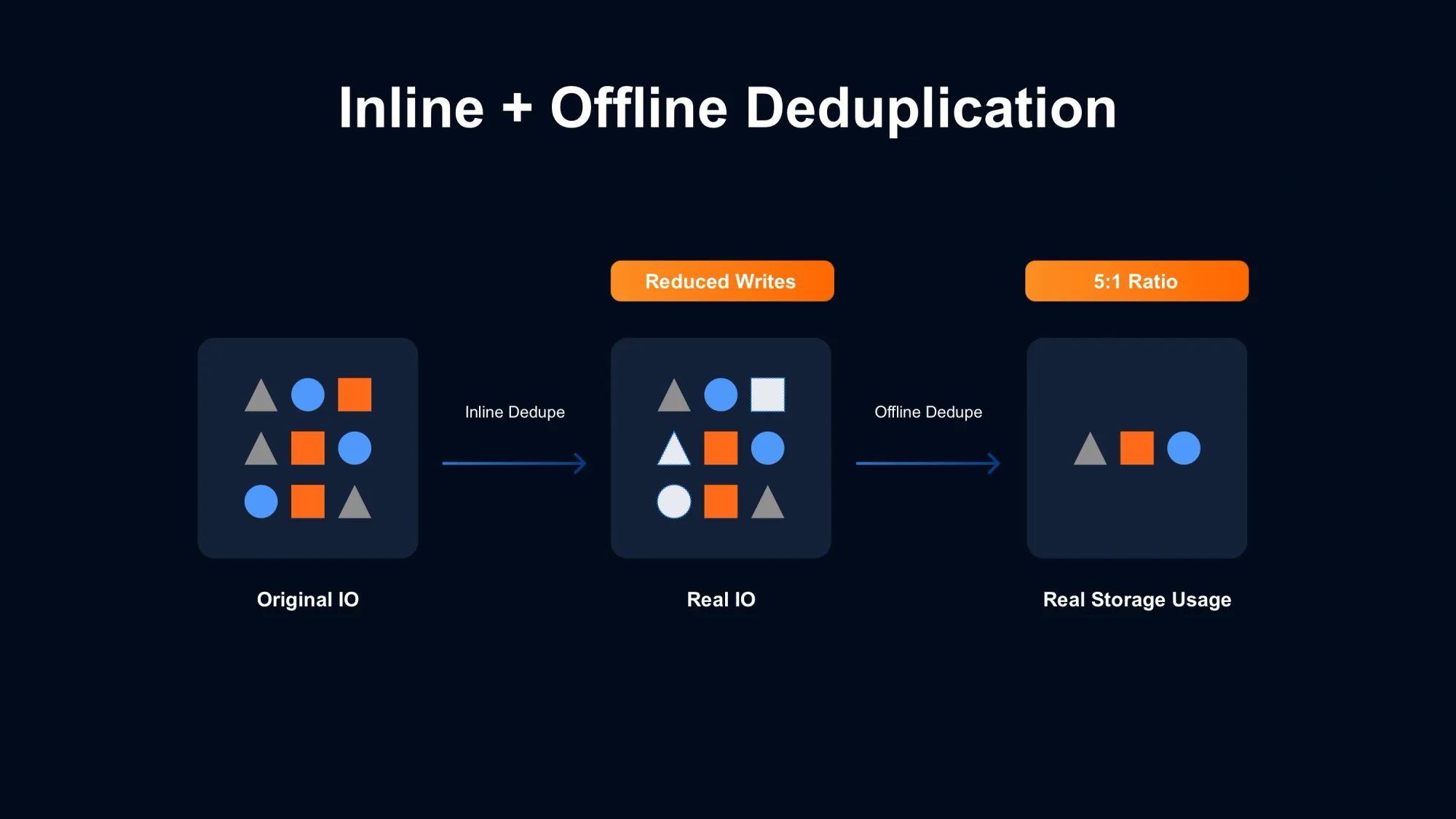
What will drive this new PAS lineup? Well PAM of course!
For all this hardware to be usable in the best possible way, and to be able to deliver said speeds Synology has appliend a custom "operating system" called Parallel Active Manager or PAM.
This is nothing new, as Synology is no stranger in building custom OS for a specific platform. Just last year they released the ActiveProtect Manager to handle their DataProtection lineup. Also, we have SRM driving their routers, and of course, DSM for the entier lineup of small and large NAS devices.
PAM supports multipathing with Fibre Channel, and with the new Continuous Availability Manager, it supports server-side storage path failover for iSCSI LUNs and IP services.
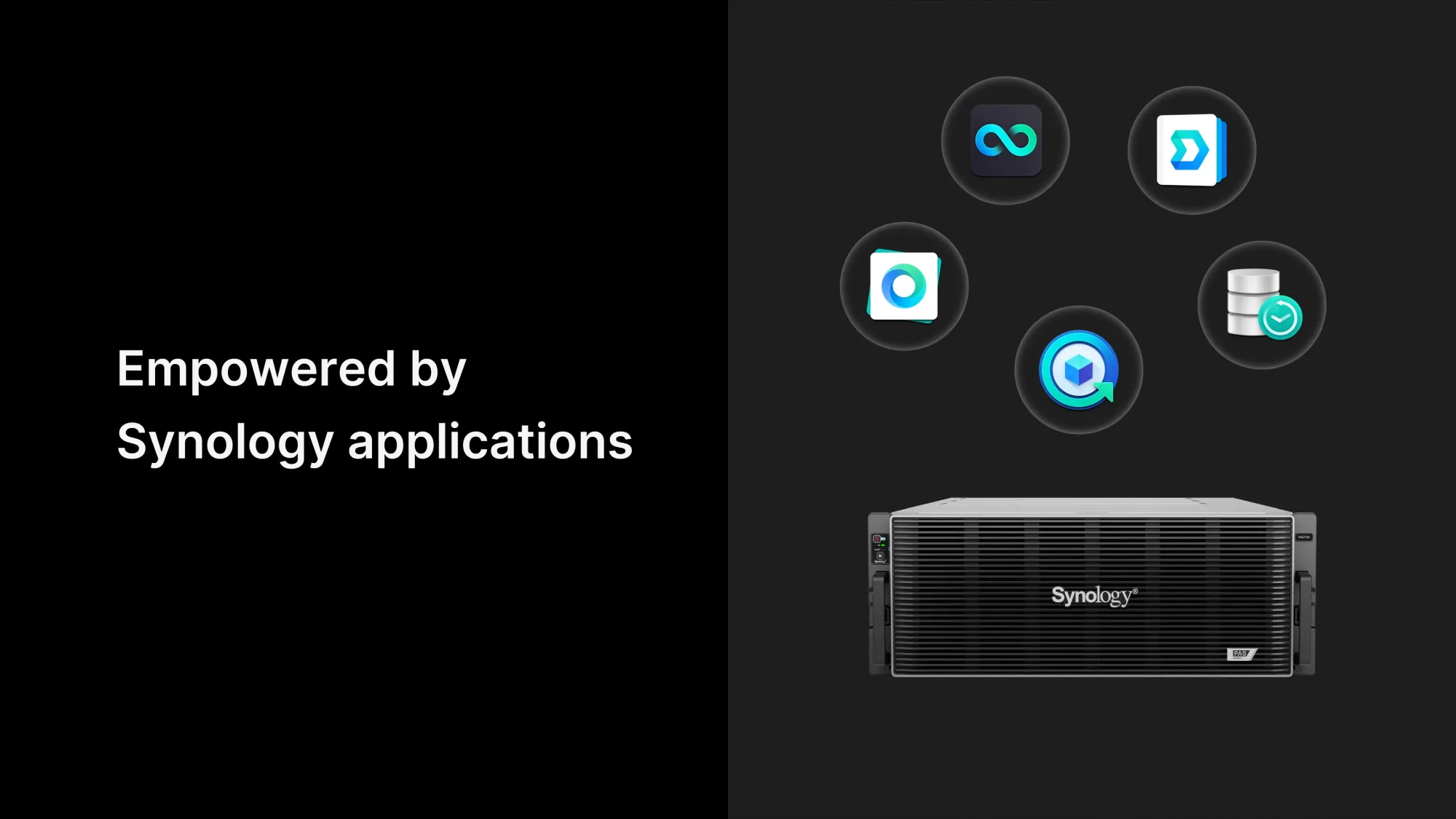

For this system, customers can expect availability of popular packages like Snapshot Replication, File Station, and Storage Manager. Additional offerings such as Hyper Backup and productivity apps like Drive, Calendar, and MailPlus will follow in 2026.
The system ensures ultra-high availability by combining active-active architectures with flexible storage path failover, guaranteeing absolute service availability. It is performance-tuned with optimized storage and network layers, offering ultra-low latency and maximum throughput for primary storage workloads. Live updates for software and firmware are applied without system downtime, ensuring continuous service availability.
It also features advanced data reduction and integrity, utilizing inline and post-process deduplication with compression to minimize data footprints, and employs next-generation Btrfs for data accuracy. Furthermore, it supports advanced RAID, including RAID-TP and a wide range of RAID configurations, to deliver maximum versatility and data availability.
Zero downtime policy
Another benefit of the new PAS7700 system is its zero-downtime policy. This design ensures that block, file, and application service availability are maintained during software, firmware, or OS updates. Updates are performed one controller at a time, with workloads seamlessly transitioning from one controller to the other during the update process. The same policy applies to drive firmware and application updates.
Rollout
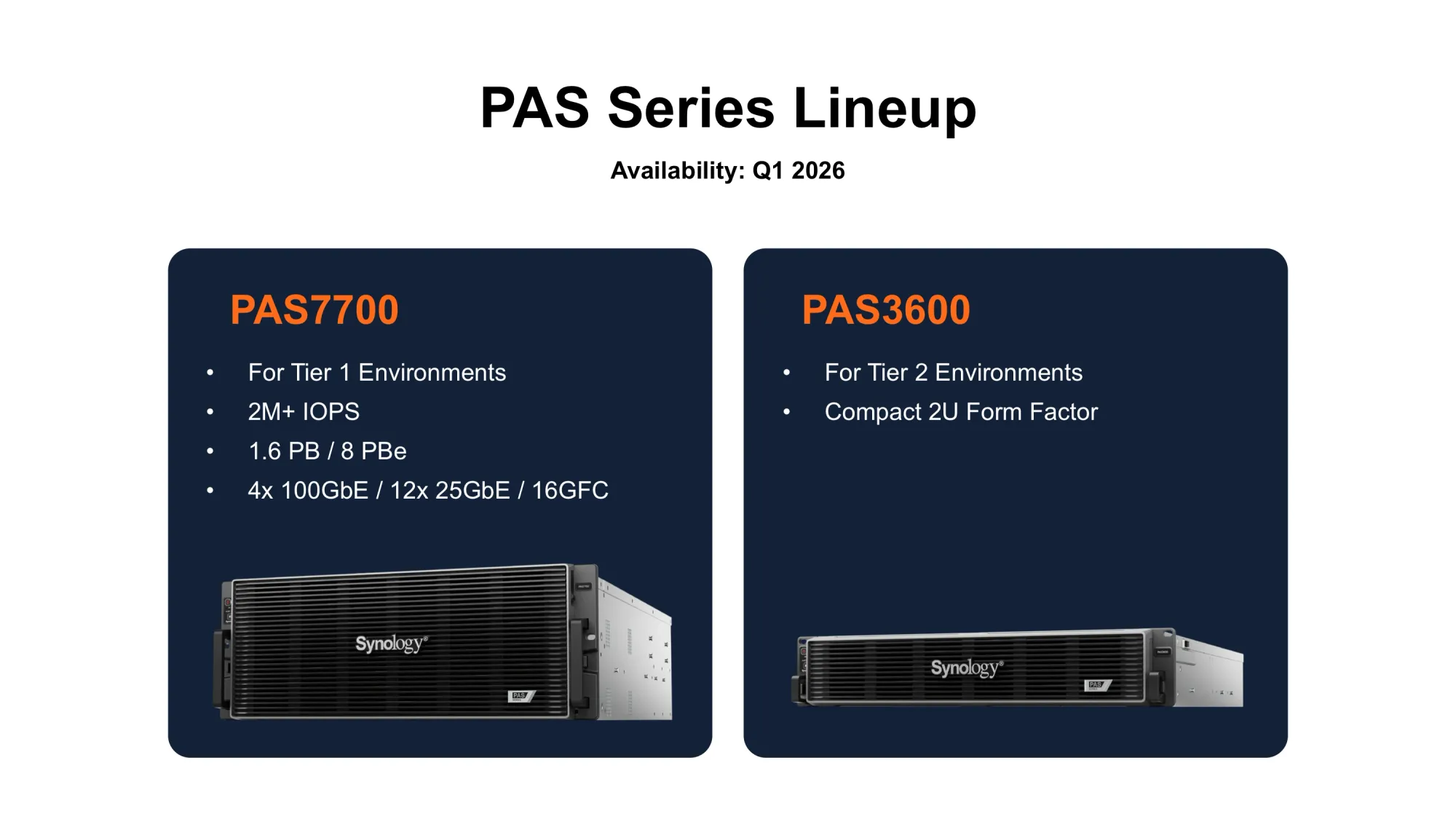
The PAS7700 is scheduled for release in the second half of 2025, with a smaller model, the PAS3600, set to roll out in Q1 of 2026. As previously mentioned, we can anticipate updates to the PAM system over the coming year, with additional features being introduced over time.


